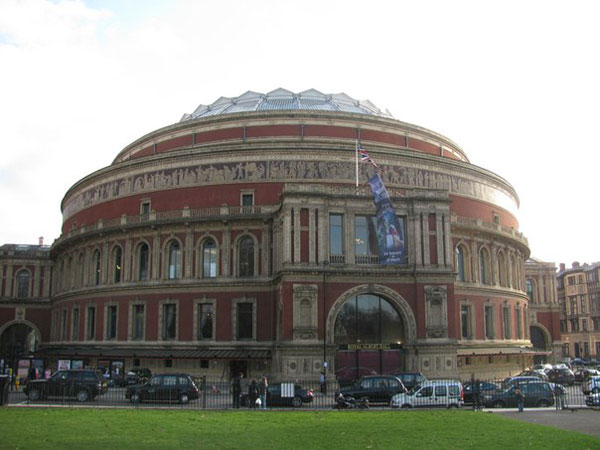The Royal Albert Hall is a concert hall on the northern edge of South Kensington, London, which holds the Proms concerts annually each summer since 1941. It has a capacity of up to 5,272 seats. The Hall is a registered charity held in trust for the nation and receives no public or government funding.
Since its opening by Queen Victoria in 1871, the world's leading artists from many performance genres have appeared on its stage and it has become one of the UK's most treasured and distinctive buildings. The location of some of the most notable events in British culture, each year it hosts more than 390 shows in the main auditorium, including classical, rock and pop concerts, ballet, opera, film screenings with live orchestra, sports, award ceremonies, school and community events, charity performances and banquets. A further 400 events are held each year in the non-auditorium spaces.
The Hall was originally supposed to have been called the Central Hall of Arts and Sciences, but the name was changed to the Royal Albert Hall of Arts and Sciences by Queen Victoria upon laying the Hall's foundation stone in 1867, in memory of her husband consort, Prince Albert who had died six years earlier. It forms the practical part of a memorial to the Prince Consort – the decorative part is the Albert Memorial directly to the north in Kensington Gardens, now separated from the Hall by Kensington Gore.










